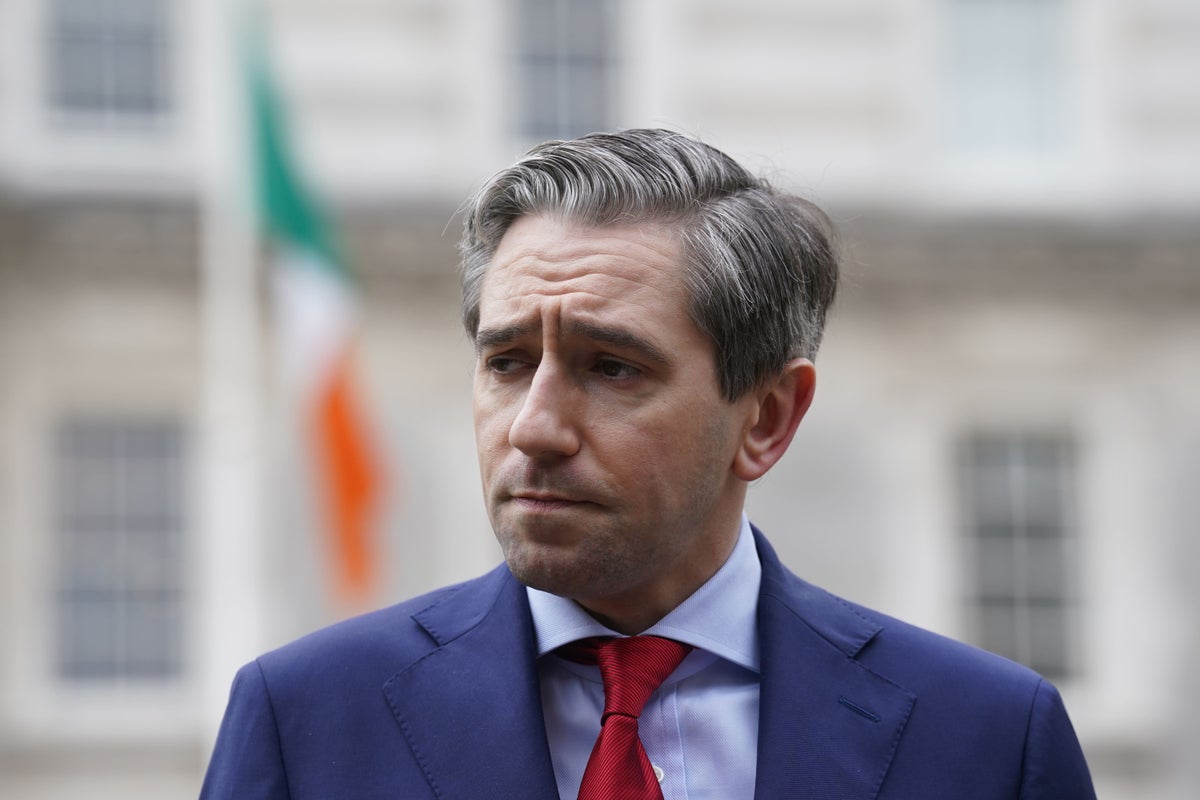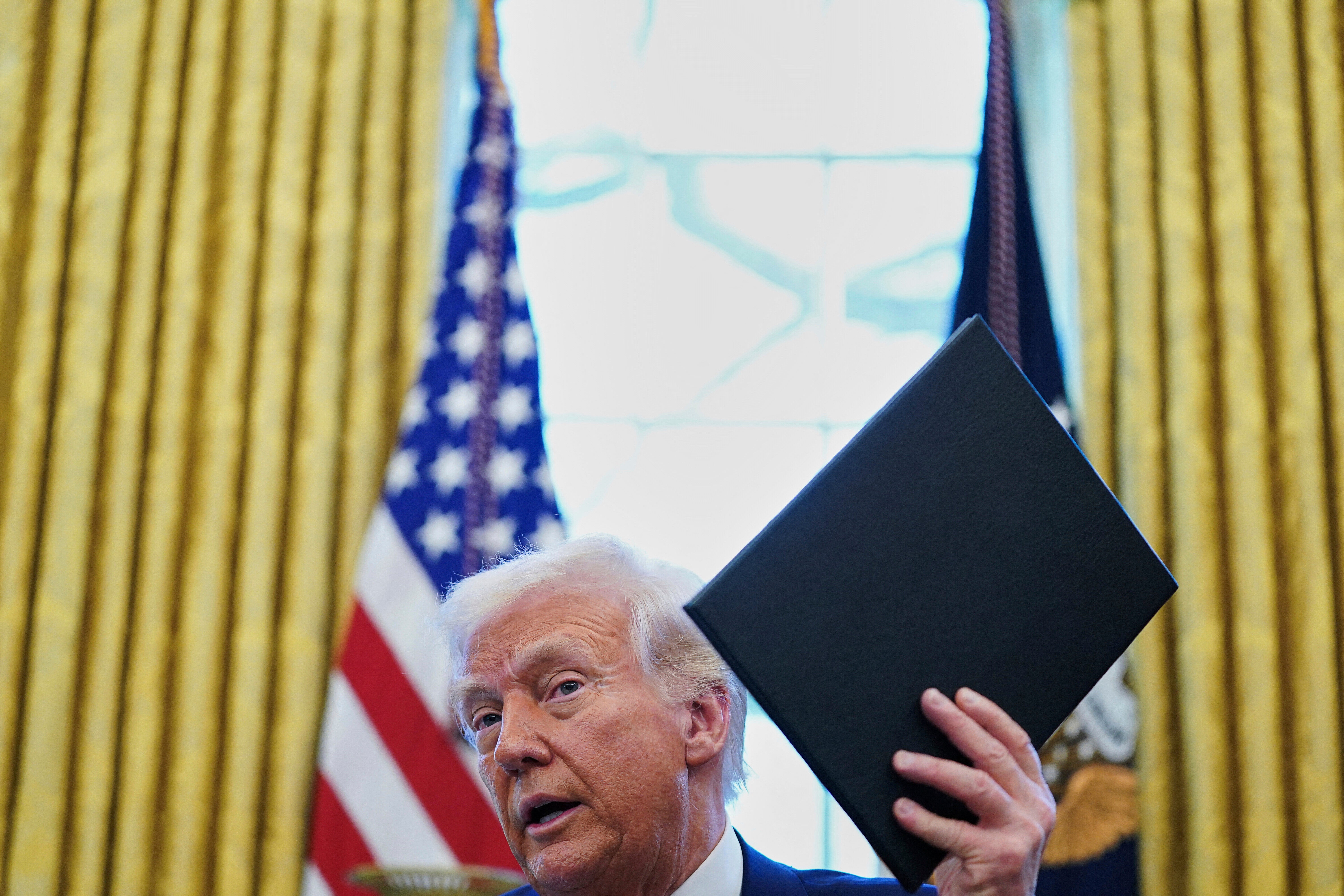
Ireland’s deputy premier has said the search for new markets for Irish goods “must continue to go on” during the 90-day pause of US President Donald Trump’s tariffs.
Tanaiste Simon Harris said that the “vital” EU-US trade relationship was worth 1.6 trillion euros a year but it “made sense to further diversify”.
Both Mr Harris and Irish premier Micheal Martin welcomed the 90-day pause on higher US tariffs, and EU countermeasures to steel and aluminium tax imports, while warning there was still a risk to the Irish economy.
Mr Harris, who is Ireland’s foreign affairs and trade minister, said the pause provided “a moment to breathe” and needed to be used “in a sensible way to try and make progress”.
He was speaking after he met US commerce secretary Howard Lutnick in Washington DC on Wednesday during what he said was “a very busy day” for the US administration.
Mr Harris said he got “a sense that we will now move into a period of negotiation”, but added that “we need to find every market for Irish goods”.
“I think the search for new markets must continue to go on,” the Tanaiste said at Government Buildings in Dublin on Thursday.
“We want to do more trade with the United States, of that there’s no doubt.
“But it also makes sense to further diversify and to accelerate that process.”
He said he would bring forward proposals to the Government to ratify the EU-Canada trade agreement and engagements were taking place with India, Singapore, Vietnam and Mexico.
Mr Harris said: “It’s still a moment of great risk to the Irish economy, the European economy, the global economy.
“Yesterday, today, provides a moment of reprieve, a moment to perhaps breathe, but there’s a huge amount of work that needs to be done, and there isn’t an hour to lose, let alone a day.”
Mr Martin said that they had understood from the start that there would be “a negotiating pathway” with the US and not to “overreact”.
The Taoiseach said the volatility on bond markets had been “influential” on Mr Trump’s decision to announce a 90-day pause, but added “we’re not out of the woods yet”.
He said on Thursday: “The China-US economic conflict, that was very worrying. That has, on its own, the capacity to continue to dampen investment and lead to instability in the markets.
“Also, we’re conscious that the 25% (on steel and aluminium) still remains, and we’re looking at a 10% tariff as opposed to a 20% tariff. But I do welcome the EU decision.”
Mr Martin said industries had also been calling for Ireland and the EU to “not overreact”.
He said: “Their soundings from the administration were that an overreaction could be counterproductive. We got the same from the administration as well.”
Mr Trump announced on Wednesday that he would delay huge tariffs on certain nations for 90 days, while raising the US tax rate on Chinese imports to 125%.

Mr Harris said the US administration was “irked” with China’s response to US tariffs.
He said: “It was clear that they were significantly irked, for want of a stronger word, at the Chinese response and the escalatory cycle that the US and China are in, in terms of slapping tariffs and counter-tariffs on each other, and certainly detecting a very strong focus on China from a US perspective.”
The US had announced a 20% tariff for the EU, which would have applied to Ireland, and a 10% rate for Great Britain and Northern Ireland last week.
Hours after this came into effect on Wednesday, Mr Trump announced tariffs would be lowered to 10% on nations that had not retaliated, which included the EU.
On Thursday the EU announced a 90-day pause in its countermeasures to a 25% tariff announced by Mr Trump on imported steel and aluminium.
It had approved countermeasures which were to come into effect in stages from April 15, reported to include orange juice, coffee, motorcycles and boats.
Bourbon whiskey is reported not to have been included in the list, despite previously being targeted by the EU.
Mr Trump previously threatened a 200% tariff on EU drinks if bourbon was included, prompting significant concern for the Irish drinks sector.
Mr Martin said he raised concerns with bourbon and dairy products being included in the countermeasures, and was satisfied Irish interests had been considered by the EU.
The potential impact of tariffs on the Irish pharmaceutical sector, which employs about 45,000 people, remains a particular cause of concern for Ireland.
Pharmaceuticals were exempt from the sweeping tariffs imposed on EU exports to the US earlier this month, but could be subject to further measures taken by the Trump administration.
The US trade secretary recently said US tech and pharmaceutical companies locating intellectual property in Ireland for tax reasons was “going to change”.
Speaking on Thursday, Mr Harris said he had outlined to Mr Lutnick that the EU and US were “very interconnected”.
He added: “I can absolutely understand, as a practising politician, why an administration will want to create more jobs and more investment in their own country.
“We want to do that in Ireland too but let’s not, in the doing of that, throw the baby out with the bath water here, because actually the presence of large multinational companies here in Ireland has been really good for the United States.
“I made the point that many of the companies based here are paying billions in royalties and licence payments back into the US each and every year.
“I also made the point very strongly that we need to be careful that nothing is done that disrupts patients here, and that actually hikes the price of medicines as well for vulnerable patients, both in the US and the EU.”
Trump signs executive order targeting weak showerheads: Live updates
Trump plans to fix showerheads and dishwashers so everything gets more clean
Keir Starmer pledges 3,000 new neighbourhood police officers by start of 2026
Starmer urged to accelerate international trade deals after Trump tariff chaos
Princess Royal views continuing restoration work on Clyde steamer
Tributes flow for three teenagers killed in crash between car and bus







